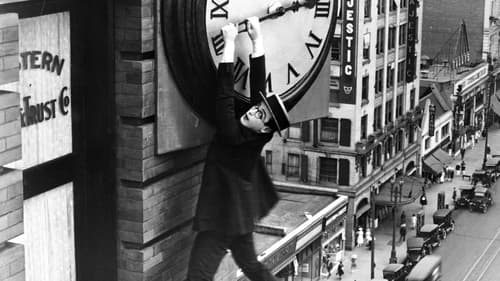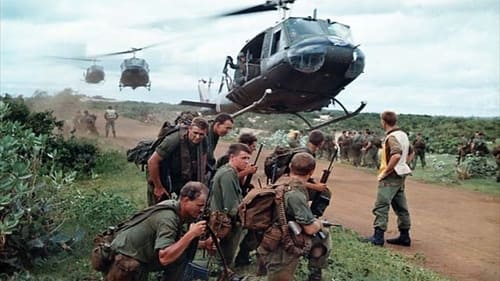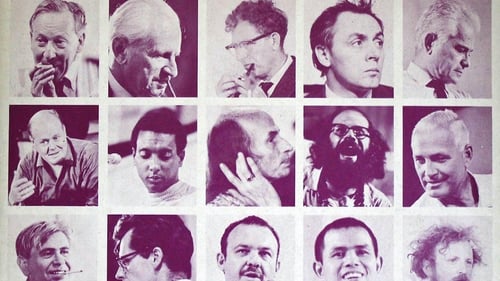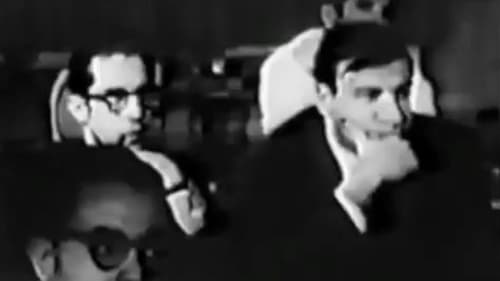Peter Davis
Birth : 1937-01-02, Los Angeles, California, USA
History
Peter Davis was born on January 2, 1937 in Los Angeles, California. His parents were the screenwriters Frank Davis and Tess Slesinger (who was also a short story writer and novelist). Davis is a producer and director, known for Hearts and Minds (1974), The Selling of the Pentagon (1971) and "JACK" (1993). Davis has also written three nonfiction books: Hometown, Where Is Nicaragua? and If You Came This Way.

Self
Testimony of the cast, the producers and other participants of the shootings of "The Osterman Weekend".

Director
This biography of the well known scientist and nature program host details his early life as a child in a WW2 internment camp and the development of his environmental philosophy.

Director of Photography
A documentary overview and ideological critique of the South African film industry and cinema's historical relationship with apartheid.

Editor
A documentary overview and ideological critique of the South African film industry and cinema's historical relationship with apartheid.

Producer
A documentary overview and ideological critique of the South African film industry and cinema's historical relationship with apartheid.

Director
A documentary overview and ideological critique of the South African film industry and cinema's historical relationship with apartheid.

Director
Updated version of Remember Mandela. originally made in 1988 while Nelson Mandela was still serving a life sentence in a South African prison.

Camera Operator
A film about the career and methods of the master silent comedy filmmaker.

Editor
This 1986 film chronicles the rise and fall of the summer pilgrimage from New York City to the Catskills once made by 1 million people a year from the 1920s to the 1960s.

Cinematography
This 1986 film chronicles the rise and fall of the summer pilgrimage from New York City to the Catskills once made by 1 million people a year from the 1920s to the 1960s.

Producer
This 1986 film chronicles the rise and fall of the summer pilgrimage from New York City to the Catskills once made by 1 million people a year from the 1920s to the 1960s.

Writer
This 1986 film chronicles the rise and fall of the summer pilgrimage from New York City to the Catskills once made by 1 million people a year from the 1920s to the 1960s.

Director
This 1986 film chronicles the rise and fall of the summer pilgrimage from New York City to the Catskills once made by 1 million people a year from the 1920s to the 1960s.

Director
Focusing on the wedding arrangements of David and Elaine, each of whom is divorced, SECOND TIME AROUND presents the complexities of contemporary marriage in the United States.

Story
Based on the autobiography of Brooke Hayward, daughter of famous Broadway producer Leland Hayward and actress Margaret Sullavan, who grows up in the glamorous, cruel and emotionally unstable world of her parents.

Director
Many times during his presidency, Lyndon B. Johnson said that ultimate victory in the Vietnam War depended upon the U.S. military winning the "hearts and minds" of the Vietnamese people. Filmmaker Peter Davis uses Johnson's phrase in an ironic context in this anti-war documentary, filmed and released while the Vietnam War was still under way, juxtaposing interviews with military figures like U.S. Army Chief of Staff William C. Westmoreland with shocking scenes of violence and brutality.

Producer
Many times during his presidency, Lyndon B. Johnson said that ultimate victory in the Vietnam War depended upon the U.S. military winning the "hearts and minds" of the Vietnamese people. Filmmaker Peter Davis uses Johnson's phrase in an ironic context in this anti-war documentary, filmed and released while the Vietnam War was still under way, juxtaposing interviews with military figures like U.S. Army Chief of Staff William C. Westmoreland with shocking scenes of violence and brutality.

Producer
The Selling of the Pentagon, was an important documentary aired in primetime on CBS on 23 February 1971. The aim of this film, produced by Peter Davis, was to examine the increasing utilization and cost to the taxpayers of public relations activities by the military-industrial complex in order to shape public opinion in favor of the military.

Writer
The Selling of the Pentagon, was an important documentary aired in primetime on CBS on 23 February 1971. The aim of this film, produced by Peter Davis, was to examine the increasing utilization and cost to the taxpayers of public relations activities by the military-industrial complex in order to shape public opinion in favor of the military.

Director
The Selling of the Pentagon, was an important documentary aired in primetime on CBS on 23 February 1971. The aim of this film, produced by Peter Davis, was to examine the increasing utilization and cost to the taxpayers of public relations activities by the military-industrial complex in order to shape public opinion in favor of the military.

Producer
Documentary of the Symposium on the Dialectics of Liberation and the Demystification of Violence, held in London, July 1967, organized by R.D.Laing, with Stokely Carmichael, Allen Ginsberg, Paul Goodman, Herbert Marcuse, John Gerassi, and many others. An important record of the spectrum of left-wing politics and personalities during the turbulent Sixties.

Director
Documentary of the Symposium on the Dialectics of Liberation and the Demystification of Violence, held in London, July 1967, organized by R.D.Laing, with Stokely Carmichael, Allen Ginsberg, Paul Goodman, Herbert Marcuse, John Gerassi, and many others. An important record of the spectrum of left-wing politics and personalities during the turbulent Sixties.

Associate Producer
On March 7, 1967, 40 million Americans tuned in to watch CBS Reports: The Homosexuals, network television’s first documentary on homosexuality. Near the top of the program, host and interviewer Mike Wallace calls homosexuals “the most despised minority in the United States.” The hour that follows is filled with salacious location footage, sermonizing therapists, and shadowed interviews with distraught homosexuals.

Director
The work of strippers in the Phoenix Club of Old Compton Street, Soho. Includes interviews with the girls, the stage show and backstage scenes.

Director
About a group of "Rockers" who belong to a British motorcycle club. Included are interviews with both male and female bikers. The film is largely based on candid interviews where the bikers respond to questions about politics, society, freedom and independence.

Director
One of three London sketches directed by Peter Davis, Pub was filmed at the Approach Tavern on Approach Road, leading up to Victoria Park in East London. It was made for Swedish television to give an impression of a typical working-class British pub.





